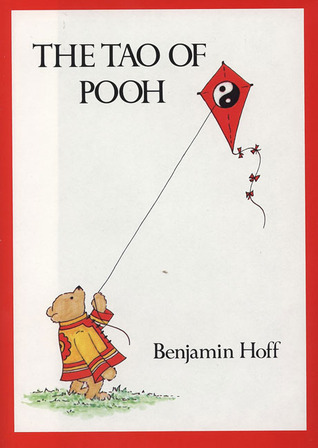Chapter 8: That Sort of Bear
byChapter 8: That Sort of Bear, Hoff tells Pooh about Beethoven’s Ninth Symphony, and Pooh excitedly mentions his favorite part, “Sing Ho! For a Bear!” However, Pooh soon realizes that this isn’t a part of Beethoven’s music but a song he made up himself. This chapter centers on the idea of “enjoying life and being special.” In the Pooh books, Rabbit leads Pooh and Piglet on an adventure, assuring them that they both are essential to the success of the journey, even though they doubt their own worth. Rabbit helps them recognize their value, illustrating an important lesson about self-acceptance and the importance of everyone’s unique contributions.
A Chinese story, The Stonecutter, offers another perspective on recognizing one’s inherent value. In the tale, a stonecutter, dissatisfied with his life, wishes to be a wealthy merchant, then a powerful official, then the sun, the clouds, and finally the wind. Each time, he seeks more power, but upon becoming a stone, he realizes that he is back where he started, observing a stonecutter chiseling into him. This story echoes Hoff’s point that many people struggle to see their own value, constantly striving for something else without appreciating what they already possess. Just like the stonecutter, individuals often chase external validation instead of recognizing their own intrinsic worth.
Hoff gets a letter addressed to “Mister Pooh Bear,” and despite it being a flyer for a shoe store, Pooh feels honored. This small moment reflects a deeper truth: true self-worth doesn’t come from material possessions or societal labels but from within. Hoff emphasizes that people should stop waiting for fate to bring them success and instead believe in their own power to shape their lives. Examples of historical figures like Buckminster Fuller and Thomas Edison show how success often follows perseverance and belief in oneself. These individuals overcame hardships and used their failures as stepping stones toward greatness, proving that those who take risks and believe in their own potential can achieve extraordinary things.
In the Pooh stories, Pooh’s actions often reflect the principle of seeing and using things for their true purpose. For instance, when Roo falls into a stream, the other animals try and fail to rescue him, but Pooh, simply by looking around, finds a pole and uses it to block the stream. Pooh’s solution comes from a calm and intuitive understanding of the situation, showing that the simplest answers often come from simply being present and aware. Similarly, when Piglet finds himself trapped during a flood, he recalls a story from Christopher Robin about a man trapped on an island who sends a note in a bottle. Piglet mirrors this action, sending a message in the same way, and Pooh rescues him in return, showing that solutions often appear when we stay true to ourselves.
Hoff also shares a humorous moment when he asks Owl if he has seen Pooh. Owl leads Hoff to a closet full of shoes in various sizes, where Pooh has been keeping them. Hoff is puzzled at first, but Pooh later admits he bought the shoes because the salesman made him feel “important.” This moment reflects how, in life, many people try to find worth through external means like possessions or appearances. However, true value comes from self-acceptance, and Hoff encourages Pooh to return the shoes, acknowledging that people often attempt to buy happiness and importance, but these things can’t be purchased.
Pooh also embodies the “Tiddley-Pom Principle,” a concept that reflects the Snowball Effect. In one of his songs, Pooh sings, “The more it snows, (Tiddley pom), the more it goes, (Tiddley pom), the more it goes, (Tiddley pom) on snowing.” This principle shows that both positivity and negativity can accumulate over time, influencing our outlook on life. Just as a snowball grows bigger as it rolls, positive thoughts and actions can multiply, leading to a happier and more fulfilling life. By embracing the small moments of joy and acting with kindness, individuals can create a cycle of positivity in their lives.
When Piglet rescues Pooh and Owl, Pooh sings a song about Piglet’s bravery, and Piglet, flattered by the recognition, feels important. Later, when Eeyore finds a new house for Owl, he doesn’t realize it’s Piglet’s house, but Piglet chooses not to mention it. He shows humility by not claiming credit, saying that if his own house were destroyed, he would simply move in with Pooh. This moment exemplifies the Taoist value of selflessness and the joy that comes from supporting others without needing acknowledgment.
Hoff concludes by reflecting on how true happiness begins with appreciation. Misery, on the other hand, often arises from discontent and a constant desire for more. This ties into the Taoist concept that virtues such as wisdom, happiness, and courage begin with a single step, much like the journey of a thousand miles. Chuang-tse pointed out how the courage of one individual can inspire thousands. Pooh’s song, “ho! for Piglet, ho!” captures this sentiment, reminding us that our actions, big or small, can have a meaningful impact on others. As the story unfolds, Pooh’s genuine approach to life exemplifies how being true to oneself leads to fulfillment, and Hoff promises to delve into what makes Pooh so special in the next chapter.

